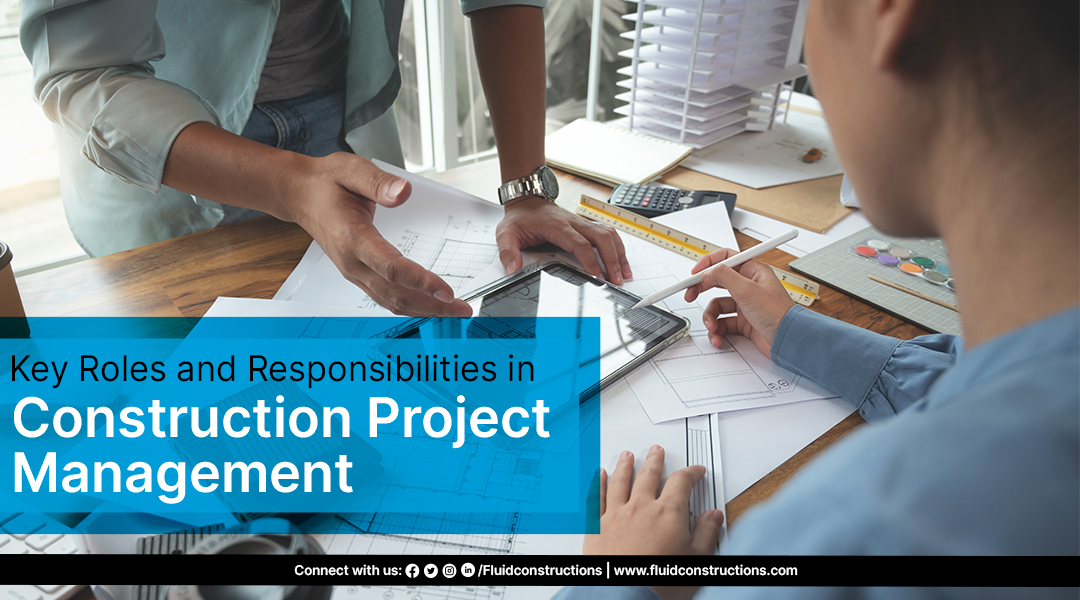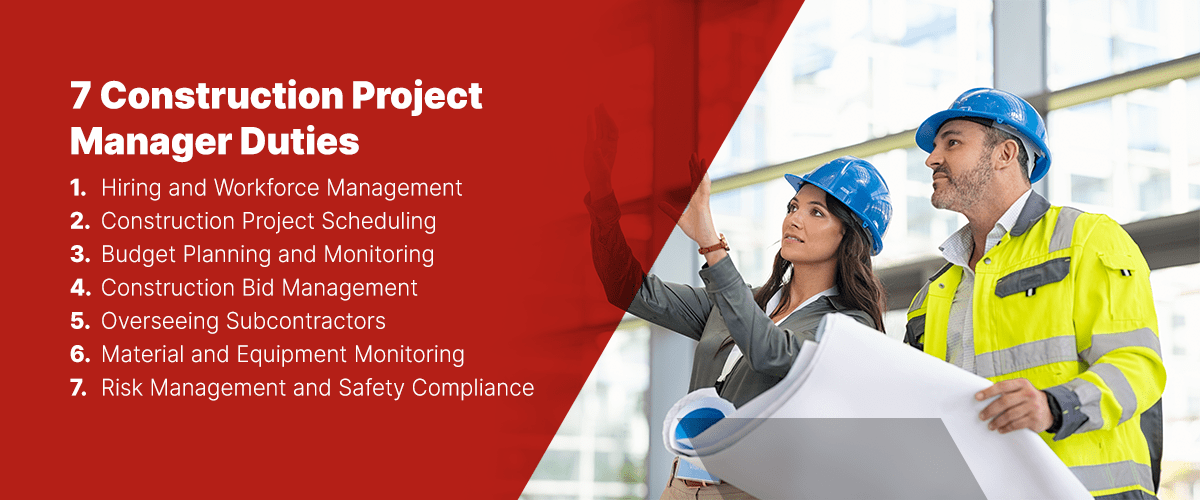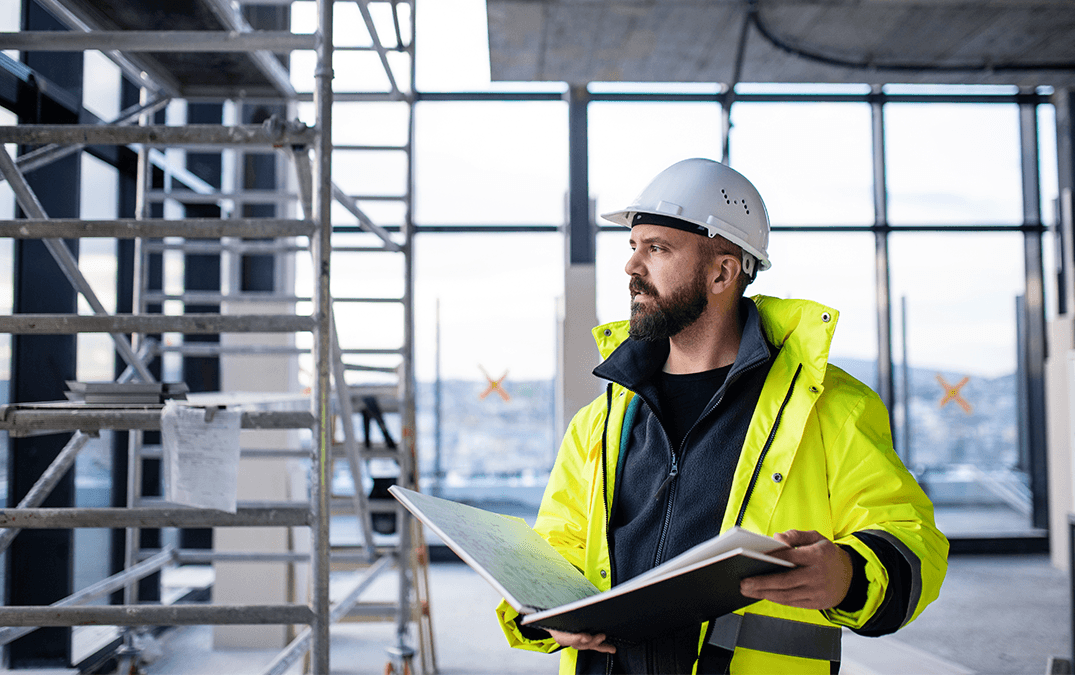7 Key Duties of Construction Project Managers

Introduction
Construction project managers are the backbone of any building endeavor, ensuring that projects are completed on time, within budget, and to the highest standards of quality and safety. Their role is multifaceted, requiring a blend of technical expertise, leadership skills, and strategic thinking. From planning to execution, these professionals navigate complex challenges to deliver successful outcomes. Below, we explore the 7 key duties of construction project managers, shedding light on their critical responsibilities and the skills that make them indispensable in the industry.
1. Project Planning and Scheduling

The foundation of any successful construction project lies in meticulous planning. Project managers are tasked with developing comprehensive project plans that outline timelines, resource allocation, and milestones. This involves:
- Creating Detailed Schedules: Using tools like Gantt charts and critical path methods to map out project phases.
- Resource Management: Ensuring that materials, labor, and equipment are available when needed.
- Risk Assessment: Identifying potential delays or challenges and devising contingency plans.
2. Budget Management and Cost Control

Construction projects often involve significant financial investments, making budget management a core duty of project managers. They are responsible for:
- Estimating Costs: Preparing accurate cost estimates for materials, labor, and overhead.
- Monitoring Expenditures: Tracking actual costs against the budget to prevent overspending.
- Cost Optimization: Identifying opportunities to reduce costs without compromising quality.
3. Team Leadership and Coordination
Construction projects involve diverse teams, including architects, engineers, contractors, and subcontractors. Project managers must:
- Lead and Motivate Teams: Foster collaboration and ensure everyone works toward common goals.
- Resolve Conflicts: Address disputes or miscommunications promptly to maintain project momentum.
- Delegate Tasks: Assign responsibilities based on team members’ strengths and expertise.
"A successful project manager is not just a leader but a facilitator who ensures seamless teamwork."
4. Compliance and Safety Oversight
Safety and regulatory compliance are non-negotiable in construction. Project managers must:
- Enforce Safety Protocols: Ensure that all workers adhere to safety standards to minimize accidents.
- Stay Updated on Regulations: Keep abreast of local and national building codes and environmental laws.
- Conduct Inspections: Regularly inspect sites to identify and rectify safety hazards.
5. Communication and Stakeholder Management

Effective communication is critical to keeping all stakeholders informed and engaged. Project managers are responsible for:
- Updating Clients: Providing regular progress reports and addressing client concerns.
- Coordinating with Vendors: Ensuring timely delivery of materials and services.
- Managing Expectations: Balancing client demands with project realities.
6. Quality Assurance and Control
Delivering a high-quality project is paramount. Project managers must:
- Set Quality Standards: Define benchmarks for materials, workmanship, and finishes.
- Inspect Work: Regularly review completed work to ensure it meets specifications.
- Address Deficiencies: Identify and rectify issues before they escalate.
| Quality Metric | Description |
|---|---|
| Material Compliance | Ensuring all materials meet specified standards. |
| Workmanship | Evaluating the skill and precision of labor. |
| Client Satisfaction | Meeting or exceeding client expectations. |

7. Risk Management and Problem Solving
Construction projects are inherently risky, with potential challenges ranging from weather delays to material shortages. Project managers must:
- Identify Risks: Conduct thorough risk assessments at every project phase.
- Develop Mitigation Strategies: Create plans to address potential issues proactively.
- Adapt to Changes: Respond swiftly to unforeseen problems to keep the project on track.
What qualifications are required to become a construction project manager?
+Most project managers hold a degree in construction management, engineering, or a related field. Certifications like PMP (Project Management Professional) and CPM (Certified Construction Manager) are also highly valued.
How do project managers handle budget overruns?
+They identify the root cause, renegotiate contracts, and implement cost-saving measures without compromising quality.
What tools do project managers use for scheduling?
+Common tools include Microsoft Project, Primavera P6, and cloud-based platforms like Procore and Buildertrend.
How do project managers ensure safety on construction sites?
+They enforce safety protocols, conduct regular inspections, and provide training to workers on hazard prevention.
What is the role of technology in modern construction management?
+Technology like BIM (Building Information Modeling), drones, and IoT devices enhance planning, monitoring, and efficiency in construction projects.
Conclusion
The role of a construction project manager is both challenging and rewarding, requiring a unique blend of technical, interpersonal, and strategic skills. By mastering these 7 key duties, project managers ensure that construction projects are completed efficiently, safely, and to the satisfaction of all stakeholders. As the industry continues to evolve, their expertise remains essential in turning blueprints into reality.

